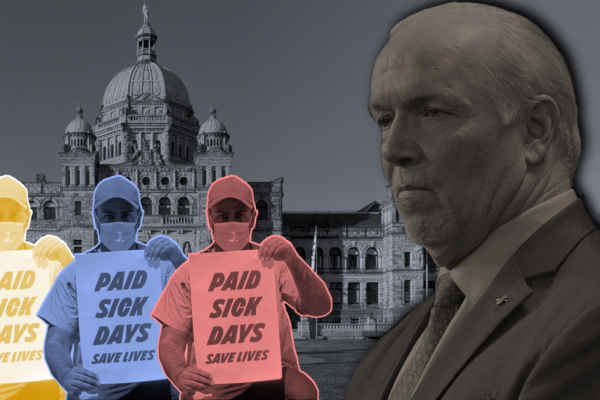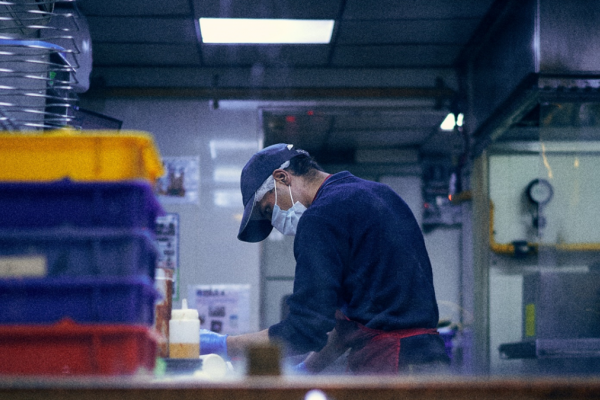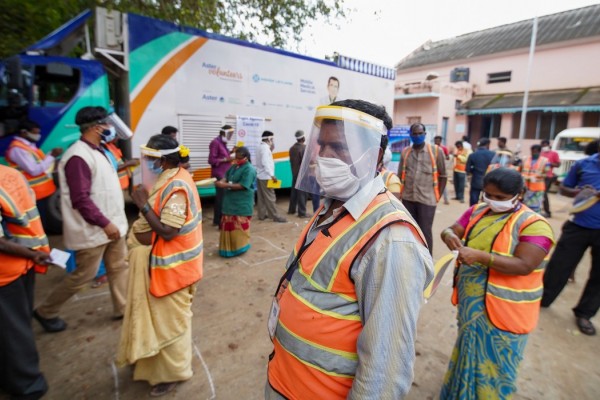-

Some of Canada’s biggest companies saw record profits during the pandemic
Early in the pandemic, it was clear that the economic fallout would be unequally distributed. However, few anticipated that the pandemic could mean boom times for some. But that is precisely what happened. While lost wages, lost jobs, and small business closures generated headlines, many of Canada’s largest corporations quietly managed to achieve record profits.
-

Nestlé workers demand equal pay for equal work
Amidst the COVID-19 pandemic, workers at the Nestlé manufacturing plant in Toronto’s west end are facing unfair conditions including part-time pay, pension cuts and precarious employment, and management is unwilling to negotiate a reasonable contract with its employees. As of May 19, more than 470 workers are on indefinite strike after talks between Unifor Local 252 and the chocolate company broke down.
-

‘Our bucket has tipped over’: Educators in Manitoba exhausted after year of neglect
Throughout the pandemic, the actions of Manitoba’s Progressive Conservatives have never been in the best interests of teachers. They have been focused solely on the economy. That’s why the government will not close schools for any meaningful amount of time. If they did, the Conservatives would have to then admit that transmission is occurring in schools and fund either universal child care or paid sick days for all Manitobans.
-

The Olympics will be the culmination of a year of failure
If capital sees the Olympic Games as the end of a pandemic and a way out of an existential crisis that could have—but didn’t—signal its collapse, the left must observe the Olympics as a beginning; as a launching point to organize and build to the next crisis, taking the failure of this one as a lesson and not an acceptance of our system’s seemingly eternal power.
-

Who is considered an expert? News reporting on drugs must do better
Shifting perspectives is no easy task because news media has immense power to inform public discourse about drug use. Simply put, we urgently need coverage that gives space to the most marginalized folks in our society in order to humanize decades of drug policy failures. This would go a long way in an effort to change attitudes about drug use during the worst public health crisis in a century.
-

Writing politics during the pandemic
We should take this moment to reflect on political writing as a collective act. The writer comes from a community, physical and digital. The writer produces material that goes into those communities, even if we do not all experience life in those communities the same. Even during a pandemic, these spaces can be productive and powerful, serving as a part of the struggle for justice and accountability.
-

It shouldn’t have taken this long for the BC NDP to legislate paid sick leave
Following months of pressure and after more than a year into the COVID-19 pandemic, British Columbia’s NDP government has finally announced plans to introduce a permanent paid sick leave program to cover the gaps in the federal government’s lacklustre Canada Recovery Sickness Benefit. Yet, as Alex Cosh writes, it shouldn’t haven take this much effort to win such basic protections.
-

How COVID-19 and CERB proved that basic income is not only possible—it works
As the pandemic unfolded, the momentum behind a Basic Income has grown steadily. Not surprisingly, people were given to wondering aloud: Just what kind of world would emerge post-pandemic? Would the megaphones of market fundamentalism holler about debt and deficit and the need to return to the decades of austerity, drowning out radical alternatives?
-

Trudeau abandons promised LTC standards, bowing to for-profit care agenda
After promising to establish national standards for long-term care in response to the tragic outcomes of COVID-19, the federal government has now washed its hands of that responsibility. It is instead passing the buck to a toothless accreditation industry to create updated standards. This band-aid solution is a far cry from what experts, advocates, and many residents, have long been asking for.
-

India’s COVID crisis shows why Canada needs to oppose vaccine monopolies
Canada’s role in obstructing India and the rest of the Global South in their attempts to waive vaccine patent rights is immoral, unjust, and completely illogical, propping up a system of extreme vaccine inequality by allowing just 16 percent of the world’s population, all of whom reside in wealthy countries, to maintain control of half of all confirmed vaccine orders.



